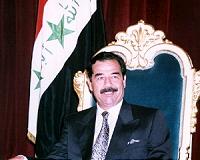 |
London (AFP) Dec 7, 2010 Iyad Allawi, who won the most votes in Iraq's elections, threatened to quit a power-sharing government in an interview with Britain's Times newspaper on Tuesday. "Power-sharing is not happening," Allawi said. "It is not set to work in a meaningful way... If it does not change, I will not participate." Despite being lauded by international leaders including US President Barack Obama, Iraq's power-sharing pact has looked fragile ever since it was agreed last month after an eight-month impasse. Despite his Iraqiya block narrowly winning elections in March, Allawi has seen religious parties coalesce to form the biggest grouping in the new parliament led by Prime Minister-designate Nuri al-Maliki. Allawi, a Shia Muslim, claimed that Iraq's political system meant a non-sectarian politician could never succeed. He laid the blame at the feet of Iraq's Shia neighbour, Iran, and said Iranian leaders had a "red line" against him. "There is a question mark on democracy now," he said. "People realise that Iran has the upper hand and they feel Iraq is controlled by foreign forces." He added: "Iran has obstructed the way to power-sharing. They have a red line against me personally and they do not want Iraqiya to participate in the new government." Allawi said Iraqis were likely to quickly become disillusioned with any government that is formed. "There is a lot of disillusionment among Iraqis, whether they voted for us or not," Allawi said. "They associated democracy with the fact that whoever got the highest numbers should spearhead the formation of the government." The Times said Allawi had also confirmed that many imprisoned members of the al-Mahdi Army, followers of fiery Shia cleric Moqtada al-Sadr, had been released as part of a deal struck between Maliki and Sadr two months ago. The move is considered likely to have been engineered by Iran. Asked how Iraq's political landscape would look in a year's time, Allawi told the paper: "Really, I don't know."
Share This Article With Planet Earth
Related Links Iraq: The first technology war of the 21st century
 US cable describes controversial Saddam execution
US cable describes controversial Saddam executionBaghdad (AFP) Dec 6, 2010 A newly-leaked US diplomatic cable describes in detail the circumstances of Iraqi dictator Saddam Hussein's execution, from guards telling him to "go to hell" to officials taking mobile phone pictures. Saddam's execution in December 2006 sparked international controversy after mobile phone video of the sentence being carried out was published on the Internet showing witnesses taunting him as ... read more |
|
| The content herein, unless otherwise known to be public domain, are Copyright 1995-2010 - SpaceDaily. AFP and UPI Wire Stories are copyright Agence France-Presse and United Press International. ESA Portal Reports are copyright European Space Agency. All NASA sourced material is public domain. Additional copyrights may apply in whole or part to other bona fide parties. Advertising does not imply endorsement,agreement or approval of any opinions, statements or information provided by SpaceDaily on any Web page published or hosted by SpaceDaily. Privacy Statement |